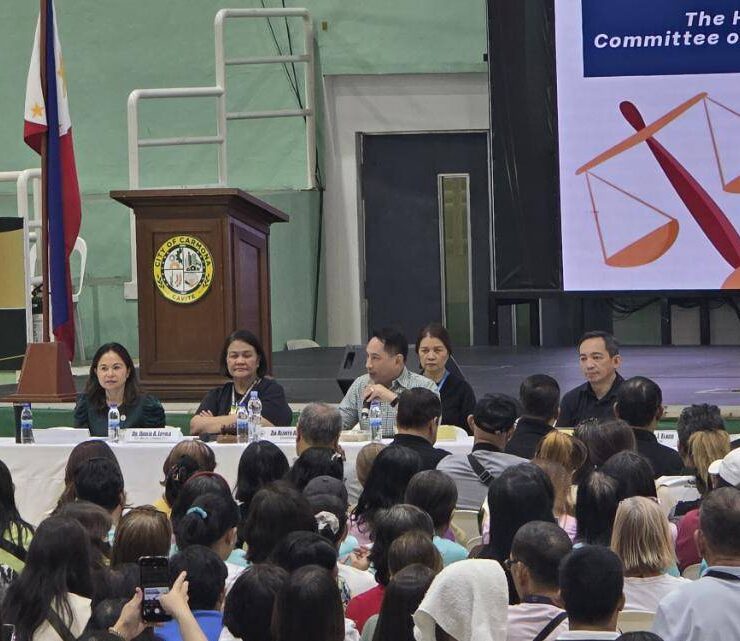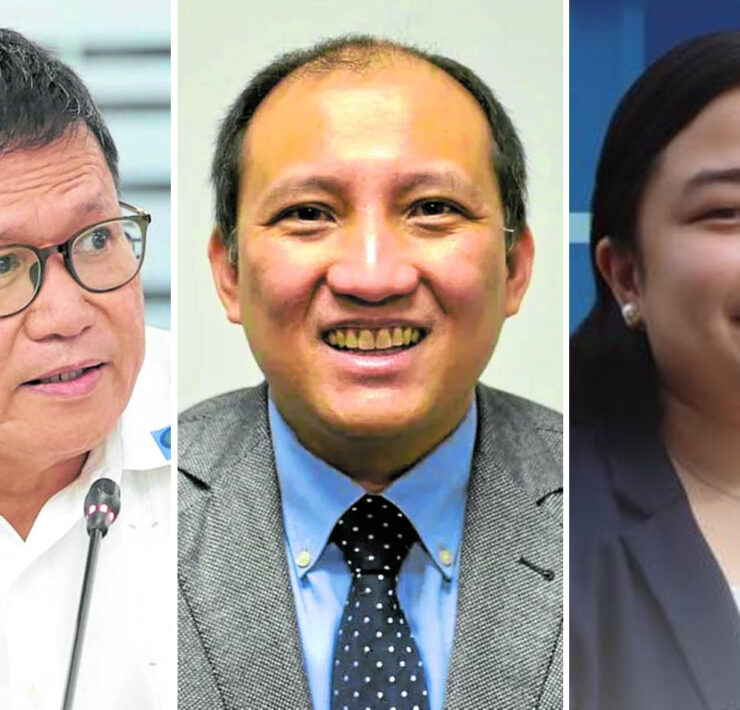Remulla’s daunting tasks

Was there any surprise that President Ferdinand Marcos Jr. would, in the end, appoint Justice Secretary Jesus Crispin Remulla as the new Ombudsman?
Remulla comes from a political clan that has long been allied with the Marcoses. The man has also proven to be one of the administration’s wiliest and brawniest operators—outfoxing the Duterte camp, for instance, by pulling off without a hitch the once-thought-impossible task of arresting former President Rodrigo Duterte and sending him off to The Hague for his crimes against humanity case before the International Criminal Court.
Under Remulla’s stint as Justice Secretary, Duterte’s “spiritual adviser,” the televangelist Apollo Quiboloy who faces a string of criminal raps in the US, was also successfully flushed out of his hiding place in Davao and clapped in jail on nonbailable charges.
But for the very same reasons, Remulla now comes to his new job freighted with political baggage and bitter opposition from those who feel aggrieved by him. Last week, Davao City Mayor Baste Duterte filed a disbarment case against Remulla for the purported “kidnapping” of his father—obviously a last-ditch ploy to keep him out of the Ombudsman’s seat.
Not to be outdone, Sen. Imee Marcos waxed melodramatic in a statement on Sunday opposing a Remulla appointment. “Black is indeed the color of the nation—mournful, anxious, and without hope,” she said. That’s because “the last pillar of accountability is being destroyed by politics in violation of the Constitution.”
Guardrails of accountability
That is, of course, quite ironic given that Imee Marcos had nothing to say when her brother’s predecessor made Samuel Martires the Ombudsman, and Martires then turned the erstwhile independent body into an extension of Duterte’s brand of governance: opaque, erratic, authoritarian, trashing its mandate as a bastion of transparency and integrity in government by, first and most outrageous of all, severely limiting the public’s access to the SALNs (statement of assets, liabilities, and net worth) of public officials.
Duterte himself was the exemplar in refusing to disclose his SALN. Martires, meanwhile, not only barred requests for the President’s SALN, but even proposed that those who made “commentaries” on the SALNs of government officials be penalized with up to five years’ imprisonment.
It can be argued that the morass of corruption and impunity the country finds itself in—with trillions of pesos lost to plunder by thieving officials and their henchmen in and out of the bureaucracy-was aggravated, made patently worse, by the past administration’s bent for dismantling the guardrails of accountability and good governance, from appointing a compliant Ombudsman to threatening independent oversight agencies such as the Commission on Audit.
Consequential gesture
That is the dark, disreputable backdrop that Remulla must now tear down as he steps into his fixed seven-year term as the new Ombudsman. And he has no time to lose—the country, fed up with unending corruption, is in no mood for more delay and distraction.
The Presidential Communications Office (PCO) has said the right words so far about his appointment: “As Ombudsman, Remulla is expected to uphold transparency, strengthen anticorruption measures, and ensure that justice is administered fairly and efficiently.”
Loud and clear. And while he faces significant skepticism at this point, Remulla can quash such doubts with one simple but consequential gesture: Release the SALNs of all public officials.
By demolishing, on his first days in office, the Martires-era firewall that shielded government functionaries from basic accountability, Remulla will bring back sanity to the Office of the Ombudsman. More importantly, he will help begin the necessary task of restoring the public’s trust in government institutions.
Explosive case
That’s only for a start. The staggering revelations of government abuse and malfeasance will all eventually end up with the Ombudsman, given that the findings of the congressional hearings and the Independent Commission for Infrastructure will only be recommendatory.
It is up to Remulla’s office to provide teeth to the investigations, by meting out just and timely punishment against every single government official found to have defrauded the people.
Yet another explosive case that Will test Remulla’s mettle: the charges against Vice President Sara Duterte for the alleged misuse of public funds. The truth about the funds’ fate having been smothered by the Senate’s refusal to tackle Duterte’s impeachment, the Ombudsman now has the task of looking into the allegations anew and rendering judgment on Duterte’s culpability.
“There will be no sacred cows, no exemptions, and no excuses. Public office is a public trust, and those who betray it will be held accountable,” said the PCO in its statement announcing Remulla’s designation as Ombudsman.
The people, long-thwarted in their quest for justice, Will hold Remulla—and ultimately the Marcos administration—to that grave promise.





















